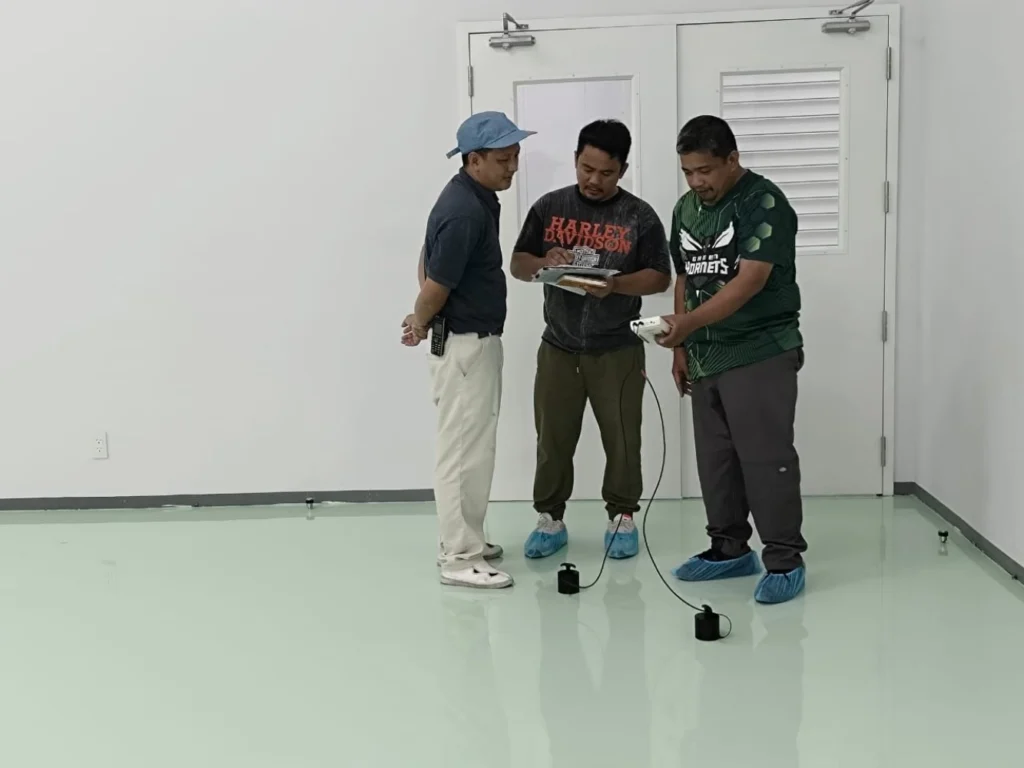When it comes to industrial flooring, two of the most reliable and widely used options are epoxy and polyurethane (PU) coatings. Both provide durable, protective surfaces over concrete, but they perform differently depending on the conditions of your facility.
This guide breaks down the strengths, weaknesses, and ideal applications of each so you can make an informed decision.
What Is Epoxy Flooring?
Epoxy flooring is created by combining epoxy resin with a hardener, forming a rigid, durable coating that bonds tightly to concrete. It’s widely used in warehouses, factories, garages, and production areas.
Key Benefits of Epoxy Flooring:
- 🛡️ High abrasion and impact resistance – withstands heavy traffic and machinery
- 🧲 Excellent adhesion to concrete – ensures a strong, long-lasting bond
- ⚡ Anti-static (ESD) options available – ideal for electronics and sensitive industries
- 🔧 Cost-efficient and durable – long lifespan with proper maintenance
What Is Polyurethane Flooring?
Polyurethane (PU) flooring is a thermosetting polymer coating known for its flexibility, chemical resistance, and UV stability. It’s often used in environments exposed to spills, temperature fluctuations, or outdoor conditions.
Key Benefits of Polyurethane Flooring:
- 🧪 Superior chemical resistance – ideal for chemical processing areas
- 🌀 Flexibility – accommodates floor movement, vibration, and expansion
- ☀️ UV stable – resists yellowing under sunlight
- ⏱️ Fast curing time – minimizes downtime during installation
Epoxy vs. Polyurethane: Quick Comparison
| Feature | Epoxy Flooring | Polyurethane Flooring |
|---|---|---|
| Durability | High (rigid, strong) | High (flexible, resilient) |
| Chemical Resistance | Moderate | Excellent |
| Temperature Resistance | Good | Excellent |
| UV Stability | Can yellow over time | UV resistant |
| Flexibility | Rigid | Slightly elastic |
| Installation Time | Longer curing | Faster curing |
| Cost | Generally lower | Slightly higher |
Which Flooring Should You Choose?
- ✅ Choose Epoxy if your priority is mechanical strength, heavy traffic resistance, and long-term cost efficiency.
- ✅ Choose Polyurethane if your facility faces temperature extremes, frequent chemical exposure, or wet processes.
👉 In some cases, a hybrid solution works best: epoxy as a strong base layer, topped with polyurethane for added chemical and UV resistance.
Get Professional Advice and Installation
Selecting the right flooring isn’t just about materials — it’s about proper installation, surface preparation, and matching the system to your operations.
At Nupon Technology Phils. Corp., we provide site assessments and professional installation of epoxy and polyurethane flooring systems across the Philippines.
📞 0917-544-2164 | 📧 ntpctmsg@gmail.com

